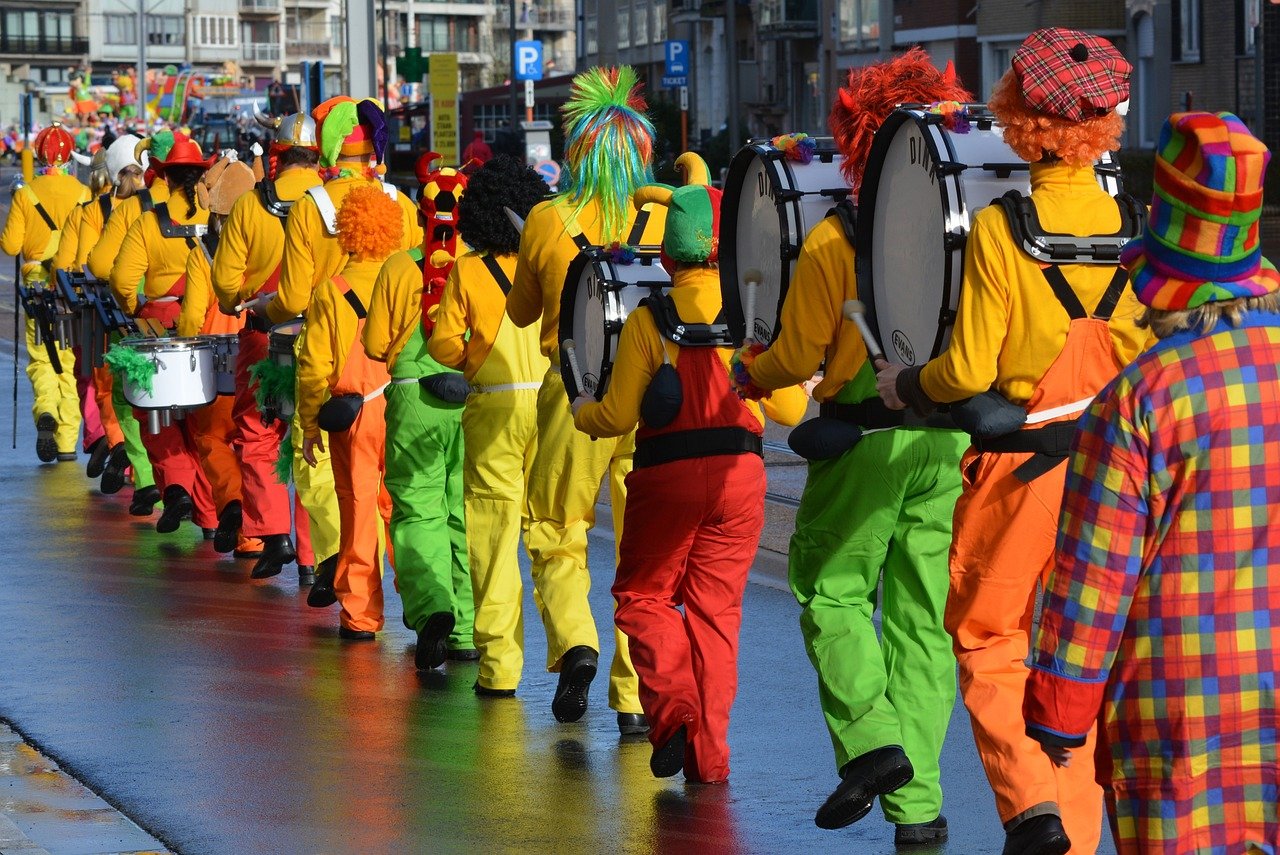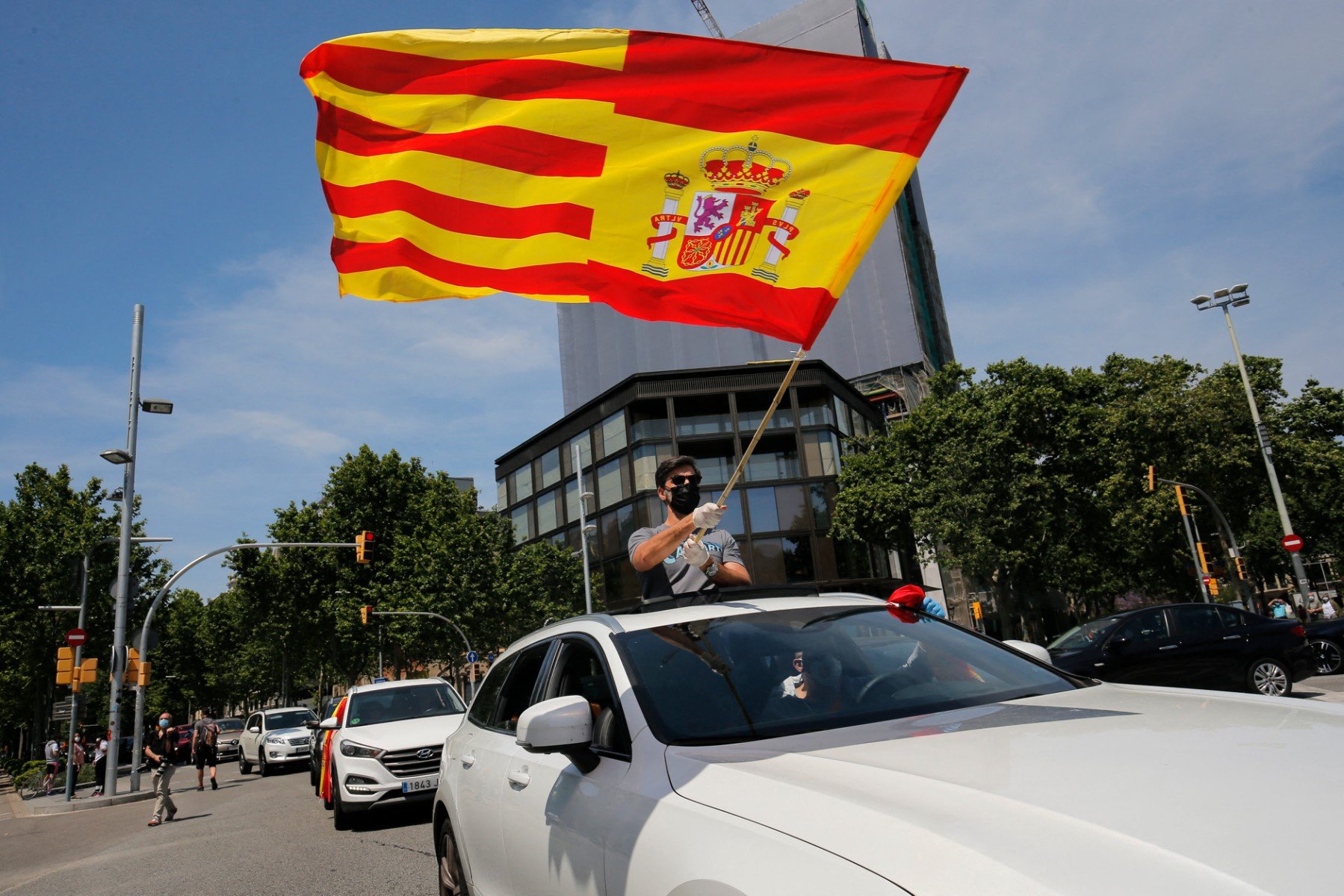‘Anywhere south of Madrid is Africa’ is perhaps the most extreme cliché which caters to the notion that there’s a huge North-South divide in Spain.
Andalusians, (from Spain’s southernmost region) are therefore often mocked by those who see the Spanish capital and northern half of Spain as more serious, affluent and productive.
Southerners are loud, idle, ill-spoken and all in all inferior, the stereotypes claim.
According to historians, Andalusians started to gain this reputation as more unrefined and untrustworthy than their ‘Castilian’ counterparts as far back as the 16th century, when Seville had become the ‘New Rome’ of Europe due to its trade links with the New World, leading to a heady mix of races and cultures living together in a raucous metropolis of ‘debauchery’.
The Andalusian government has an article on their website in which it explains how this reputation for party over productivity came about.
Even famed 19th century writers such Gautier, Mérimée and Byron contributed to this image, despite being big admirers of Andalusia.
The stereotypes persist to this day, much to the annoyance of many Andalusians who do not want to pigeonholed. That’s not to say that Andalusians aren’t proud of their culture, language, cities and more – many will fervently defend Andalusia.
With this in mind, here are some comments you should avoid making to Andalusian people, unless you want to potentially find yourself in very hot water.
Call them lazy
The stereotype that Spaniards are lazy is widespread overseas, but within Spain it’s the Andalusians who are classified as work-shy. It’s true that many andaluces have a more relaxed attitude to life and work, meaning that it can take a longer to complete certain processes or responsibilities, and the insufferable summer heat doesn’t help either. The unemployment rate is also one of the highest in Spain.
However, there’s plenty of big business booming in Andalusia. Málaga has now become one of the continent’s biggest tech hubs. In 2021, Google announced that it would establish a hub in Málaga, giving rise to the moniker – the ‘Silicon Valley’ of Europe. Other international companies soon began to follow in the internet giant’s footsteps, planning their own Málaga bases, brands such as Vodafone, Citigroup, Banco Santander, GP Bullhound and EY.
READ ALSO: Why Spain’s Málaga is becoming a victim of its own success
Criticise their accent or tell them they have a lisp
Andalusians are known throughout Spain for having one of hardest-to-understand Spanish accents, so you can imagine how tough it is for foreign Spanish language learners with untrained ears. It’s certainly not ‘newsreader Spanish’, they do often swallow the ends of words and use a lot of slang, but it isn’t a worse or more incorrect version of Spanish than that spoken in Madrid or northern Spain. If anything, it’s a perfect example of the varied richness of castellano spoken across Spain’s 17 regions.
A condescending attitude towards el acento andaluz will therefore not win you any friends. In fact, a study by the Centre of Andalusian Studies found that four out of ten people in the region will get angry if you mock their accent.
Nor is it a good idea to say that Andalusians have a lisp. There is not one Andalusian accent but many, and the ceceo (pronouncing s, c and z all with a th sound), the seseo (pronouncing s, c and z all with a s sound) or making a distinction between c/z and s like in northern Spain all depends on the area of Andalusia. It’s not a speech impediment or lisp, they are linguistic idiosyncrasies.
READ ALSO: A handy guide to understanding Spain’s regional accents

Most Andalusians love to dress up, particularly when going out for dinner, to bars or even just out for an evening stroll. It’s not uncommon to see whole families dressed up to the nines in suits, cocktail-style dresses and children with frilly skirts/smart shirts and perfectly polished leather shoes.
It’s totally the opposite to many other places in Spain, particularly in Catalonia where anything goes and no one would look twice at you if you decided to go to a bar in jogging bottoms, a t-shirt and flip-flops. But don’t poke fun at their love of looking good, maybe take a leaf out of their book and join them.
READ ALSO: What are the regional stereotypes across Spain?
Assume they’re all party animals
Andaluces are known to be the most outgoing, fun-loving, and gregarious Spaniards in the country with a love of going out and partying. One of the best times to see this is at one of their ferias, which are often held in spring or summer. While it’s true that the streets here are still buzzing after midnight, bars often spill out onto the streets and clubs are wild, it doesn’t mean that all Andalusians like this lifestyle. Many might prefer a relaxing glass of wine in a quiet bar or even to stay at home with a tasty cooked meal instead.

Be very careful if you’re making statements like this to an Andalusian. It’s true that Andalusia and Extremadura, along with the autonomous city of Melilla, are the Spanish regions that consistently have the lowest GDP per capita in Spain. Not being home to big cities and relying mainly on tourism and agriculture rather than business and industry means means they far lesser economic clout that the richer north.
However, Andalusia does support the country as a whole in pivotal ways. For example, around 80 percent of Spain’s olive oil is produced in Andalusia and it also grows the majority of Spain’s fruits and vegetables, many of which are exported all over Europe.
READ ALSO: Why are the Basque Country and Catalonia so rich compared to the rest of Spain?
Make fun of their Semana Santa
Semana Santa or Holy Week around Easter is a big deal in Andalusia. Cities go all out with elaborate parades, over-the-top costumes and huge intricate floats. Some parades last all day, while others go on in the middle of the night. The fact is that Andalusia’s Semana Santa celebrations can seem very sombre and serious when compared with festivals in other parts of the country, particularly Catalonia and Valencia’s fiery, crazy antics.
Many people make fun of this fact and Catalan TV station TV3 once put their foot in it by mocking Holy Week and dressing up an actor as the Virgin, which provoked a backlash of criticism on social media and outraged Andalusians. Many andaluces are still Catholic (practicing or culturally religious), so they take their Easter parades very seriously, from the music to the emotional saeta songs and even the right way to hold their candles. It’s a sacred tradition that shouldn’t be laughed at.

Andalusia’s Costa del Sol is one of the most favoured areas in the country when it comes to holidaying on the coast. The region has in fact around 1,000 km of coastline and contains everything from long swathes of caramel-coloured sand to dramatic cliffs, buzzing resorts and quiet fishing villages. Andaluces are rightly proud of their fantastic beaches but there is somewhat of a rivalry with Valencia’s Costa Blanca, another region which is very popular with tourists looking for the ultimate beach holiday. Every Andalusian has their favourite local beach and telling them that the ones along the eastern coastline are better is sure to rub some up the wrong way.
Argue that Andalusian culture is just flamenco
It’s all very easy to just say that Andalusian culture is all flamenco and bullfighting. Yes, Andalusia is the birthplace of the art form, the place where you can see some of the best performances and the region that still holds the most bullfights, but there is so much more to the region’s heritage.
For example, its culture is also influenced by its climate and history, much of which has to do with the Moors who ruled parts of this region for around 800 years. It also has a strong culinary culture with some of the best tapas found throughout the country, as well as varied musical styles and connections with the seafaring trade. You could spend months in the region and see so much culture, before even seeing one flamenco show.

Ruin their siesta
While it’s common abroad to assume that siestas are common practice all over Spain, it’s not really true. Nevertheless, they are much more common and taken much more seriously in Andalusia than in other regions as it’s one of the hottest areas in Spain with summer temperatures regularly hitting high 30s and even 40C and above. Therefore, an afternoon rest is necessary to hide away from the searing heat of the day.
Many shops, attractions, museums and even bars, and restaurants have particular afternoon closing times, particularly in summer. If you disturb an andaluz during this time, they’re not likely to be very amenable when they awake.
Assuming all Andalusians like to tell jokes
Another Andalusian stereotype is that they are all very funny and love to tell jokes. You may inadvertently annoy someone off by putting them on the spot and asking them to tell you a joke, just because they’re from the region.
This stereotype stems from the fact that they’re known for their friendliness and open nature, but also because people from Cádiz in particular are said to be more humorous and funny than the rest of Spaniards. This is partly down to Cádiz’s famous carnival celebrations which have humour at their centre, often with satirical songs, hilarious costumes and amusing wit.





 Please whitelist us to continue reading.
Please whitelist us to continue reading.
Member comments